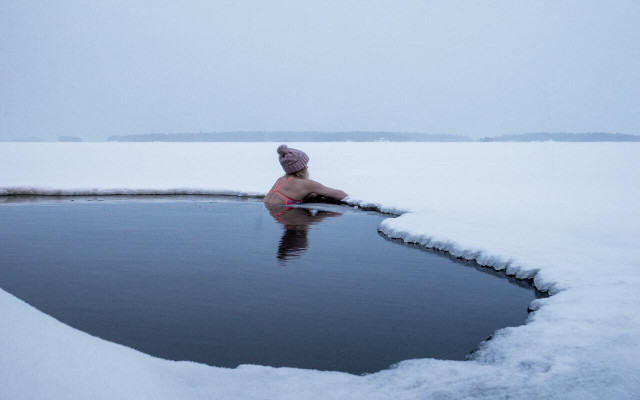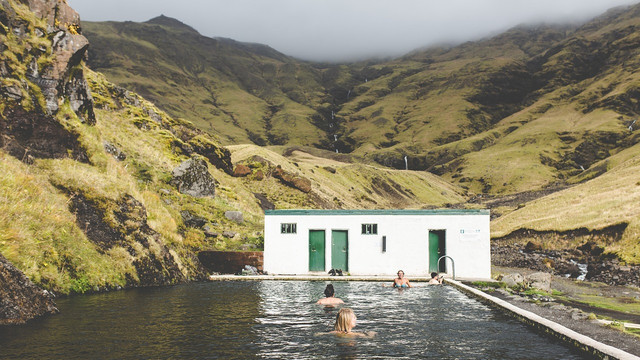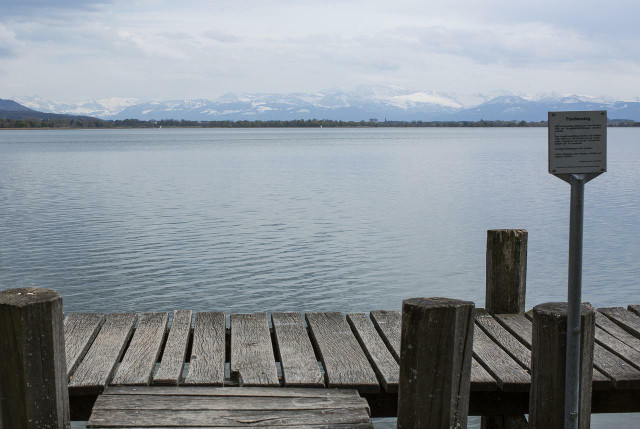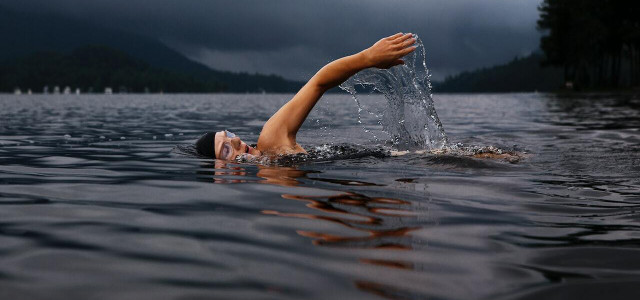Cold water swimming has been growing in popularity recently, and for good reason. Learn about the benefits of cold water swimming and why you should try it.
Cold water swimming is, as the name suggests, swimming in cold water. Also known as winter swimming, or ice swimming, it involves taking an icy dip in outdoor waters such as rivers, lakes, or the sea. Cold water swimming is mainly done during the winter, but can also be done year-round in colder or polar regions across the world.
Benefits of Cold Water Swimming

(Foto: CC0 Public Domain / Unsplash / Mika )
Numerous studies have looked into the health benefits of cold water swimming on the body and mind. Safe to say, the results are positive! Here are just some of the health benefits to cold water swimming:
- Boosts your immune system: As your body enters cold water, it is forced to react. This causes an increase in your white blood cell count. Experiments on cold water swimmers found that over time, your body will improve its ability to boost your white blood cell count when it has to react to changes, making for a stronger, more reactive immune system.
- Improves your circulation: Cold water swimming forces blood to surface as it flushes your arteries, veins and capillaries.
- Reduces stress: Because your body is placed under stress both physically and mentally for a short period of time, the after effect of cold water swimming means you feel more relaxed. Cold water swimmers have experienced that continued sessions will gradually make you feel more relaxed and calmer.
- Reduces inflammation: It is well known that athletes take ice baths after exercise to help with muscle recovery. Cold water swimming has the same effect. The lower blood flow to your limbs means that muscles are able to recover more easily, reducing inflammation.
- Boosts your self-esteem: Cold water swimming does not come naturally to most of us. Forcing ourselves out of our comfort zones gives us a real sense of accomplishment. Studies have found that as you become more comfortable forcing your body and mind to be uncomfortable while cold water swimming, you are building up mental strength which you can apply to other areas of your life.
Read more: Is Skinny Dipping Illegal? What You Need to Know
Potential Drawbacks of Cold Water Swimming



(Foto: CC0 / Pixabay / StockSnap)
Despite the long list of benefits to cold water swimming, there are some safety and health risks which should be taken into account when readying yourself to take an icy dip. Familiarizing yourself with these risks is really important, especially as a beginner cold water swimmer:
- Cold shock: The most common risk to cold water swimming is cold shock. Cold shock occurs when you first immerse your body in very cold water. The body reacts by entering a period of hyperventilation that you cannot control. This makes breathing much faster, potentially causing you to go into a state of panic. There is a small risk of drowning if you enter a serious state of cold shock. Try to remain calm and still, and your breath should slowly come back to you.
- Cramp: Cramp can strike at any time, but some are more prone to cramping than others, especially when cold. If you begin to cramp when cold water swimming, float on your back and call out for help.
- Cold incapacitation: This occurs when the body seems to adjust to the cold temperature, and the water feels comfortable. Swimmers then head further out to deeper water. But the body becomes cold again and starts to lose more heat, causing muscles to weaken, making limbs feel heavy and slow. Swimming then becomes more difficult, which can cause swimmers to enter a state of panic.
- After drop: After drop happens when you feel colder after having got out of the water than when you first got in. Heating up the body again will feel longer and more uncomfortable.
Safety Tips for Cold Water Swimming



(Foto: CC0 / Pixabay / JamesQube)
Like any sport, especially one where you are going into open and cold water, there are safety considerations:
- Stay safe: Never swim on your own, and always make sure there is an easy way for you to get into and out of the water beforehand.
- Wrap up: You don’t necessarily need to wear a wetsuit, but wearing a swimming hat, or even a wooly hat, will help to preserve more body heat. You can also get neoprene gloves and boots.
- Listen to your body: Generally, the rule is that your body can spend one minute in the water per degree of water temperature. But listen to your body and know your own limits. If it is getting too cold for you, don’t hesitate to get out.
- Don’t dive straight in: Unless you are very accustomed to cold water, do not dive straight in. This can increase your chances of cold shock.
- Don’t jump in a hot shower straight afterwards: Transitioning from extreme cold to heat can cool your body, which can be very dangerous. Instead, wrap up really well afterwards, have a hot drink, and cuddle up with a warm homemade heating pad.
Read more:
- What to Do on a Hot Day: 11 Eco-Friendly Activities
- How to Beat the Heat: 6 Tips for Keeping Cool This Summer
- 8 Yoga Alternatives With Similar Benefits
Important Information regarding Health-related Topics.
** Links to retailers marked with ** or underlined orange are partially partner links: If you buy here, you actively support Utopia.org, because we will receive a small part of the sales proceeds. More info.Do you like this post?








